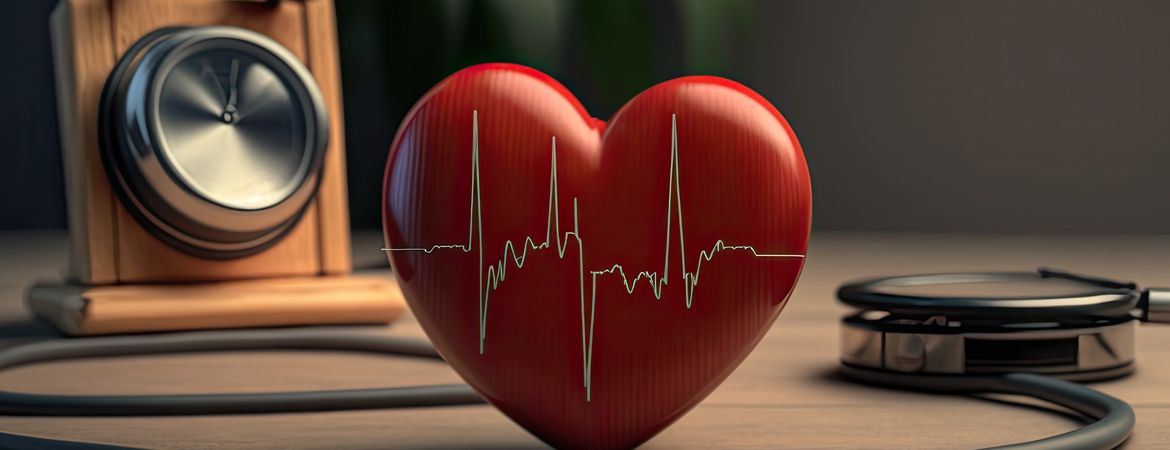
Tachycardia is a heart rhythm disorder that can cause palpitations, dizziness and a feeling of a fast heartbeat. In this comprehensive guide, you’ll learn about the possible causes of tachycardia, the symptoms to look out for and the treatments available to help manage the condition.
WHAT IS TACHYCARDIA?
Tachycardia is an abnormal heart rhythm in which the heart beats faster than normal. This can cause symptoms such as palpitations, dizziness, a feeling of a fast heartbeat and tiredness. There are several types of tachycardia, each with different causes and treatments.
The types of tachycardia are:
Atrial fibrillation: a fast, irregular heartbeat that occurs when the upper chambers of the heart (atria) beat very fast and do not contract normally. Atrial fibrillation is often called ‘beating heart syndrome’ because if you listen to someone’s chest with a stethoscope while they have atrial fibrillation, you will hear a fast, irregular rhythm instead of a normal heartbeat. Atrial fibrillation is usually diagnosed using an electrocardiogram (ECG).
Bradycardia : a slow heart rate of less than 60 beats per minute. Bradycardia can be caused by very low blood pressure (hypotension) or by heart block – when there is an abnormal electrical connection between the upper chambers of the heart (atria) and the lower chambers (ventricles). This can happen if there is a problem with an artery or nerve that supplies the heart muscle with the electrical signals needed to coordinate pumping activity.
Cardiac arrest: When the heart stops pumping blood because it is not getting enough blood or oxygen-rich blood from the lungs. Cardiac arrest is not the same as a heart attack. A heart attack occurs when blood flow to a part of the heart muscle is blocked by a blockage in one or more of the arteries leading to it. This damages the heart muscle and, if not treated immediately, can often lead to serious disability or death.
Paroxysmal supraventricular tachycardia (PSVT) : A rapid heartbeat that starts in a part of the upper part of the heart (above the ventricles). Paroxysmal supraventricular tachycardia often occurs when the AV node is overstimulated by a premature electrical impulse from another part of the heart, such as an accessory pathway.

THE CAUSES OF TACHYCARDIA:
The causes of tachycardia can vary depending on the type of tachycardia:
In general, some common causes include stress, anxiety, excessive caffeine or alcohol, thyroid disorders, underlying heart disease and the side effects of certain medicines.
A heart rate of more than 100 beats per minute is called tachycardia. It can be caused by a number of different factors and conditions. Tachycardia can be detected with a machine called an electrocardiogram (ECG), which measures the electrical activity of the heart.
The causes of tachycardia are listed below:
Heart disease: If you have heart disease, it can cause a significant increase in your heart rate. Cardiomyopathy, coronary artery disease and heart valve problems are just some of the conditions that can cause rapid heartbeats. Others include high blood pressure, abnormal heart rhythms and cardiac arrest.
Heart attack: If you experience chest pain, shortness of breath and a feeling of fainting, you may be having a heart attack. If you feel pain in your left arm or jaw, this may be caused by a blockage in one of the arteries supplying blood to the heart muscle.
Medication: some medicines, such as decongestants, anti-anxiety and anti-depressants, can cause an abnormally fast heart rate. Other medicines, such as those used to treat diabetes, can also cause rapid heartbeats.
It is important to see a doctor to determine the cause of the tachycardia and to develop an appropriate treatment plan.
SYMPTOMS OF TACHYCARDIA:
The symptoms of tachycardia can vary depending on the severity of the condition and the speed of the heartbeat. Common symptoms include a fast or irregular heartbeat, dizziness, lightheadedness, palpitations, chest pain, difficulty breathing and excessive tiredness. If you experience any of these symptoms, it is important to see a doctor for diagnosis and appropriate treatment.
TREATMENTS FOR TACHYCARDIA:
Treatments for tachycardia depend on the underlying cause of the condition. In some cases, lifestyle changes such as reducing caffeine and alcohol intake, stopping smoking and managing stress can help reduce symptoms. In other cases, medicines such as beta-blockers, calcium channel blockers and anti-arrhythmics may be prescribed to regulate the heart rhythm. In severe cases, surgery or catheter ablation may be needed. It is important to discuss the most appropriate treatment options for your individual situation with your doctor.

